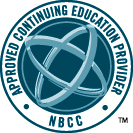
Innovations in Counseling

Preparing Counselors of Color: Addressing Differences in Counselor Education and Supervision Practice
People of color make up a small percentage of both those receiving mental health and addiction services and of mental health practitioners (e.g., counselors, psychologists, psychiatrists and social workers). Due to the disparity among mental health practitioners of color and the patient population, education, training and supervision in cultural competence are imperative. As counselor educators who mainly educate and supervise counselors of color (COCs) and counseling students of color (CSOCs), the presenters have found that they have unique areas of cultural competence that need to be addressed. Several CSOCs report ill feelings, anger and even depression as it relates to experiences in which they have been discriminated against, oppressed and treated unfairly because of their race. Some report negative interracial relationships, experiences and media messages, which may result in mistrust, dislike, envy and even hatred of whites and other people of color. Some mental health professionals also face challenges in educating and supervising COCs and CSOCs due to their own level of cultural competence and lack of training in addressing these issues.
This webinar will provide knowledge, strategies and techniques that will assist counselors, supervisors and counselor educators who work with CSOCs as well as address potential barriers. Furthermore, this webinar will briefly outline the results of a review of multicultural textbooks used in counseling programs and their inclusion of content specifically targeted at developing the unique areas of cultural competence for CSOCs.
In this session, participants will:
- Learn about the unique areas of cultural competence that counselors of color (COCs) and counseling students of color (CSOCs) face.
- Become familiar with strategies and techniques that will be helpful in assisting COCs and CSOCs to navigate the challenges they might have in working with whites and/or other people of color.
- Learn about ways to address the barriers that COCs face when training and supervising.
- Be introduced to the research findings of the review of multicultural textbooks that may be helpful in preparing COCs and CSOCs with their development as culturally competent practitioners.
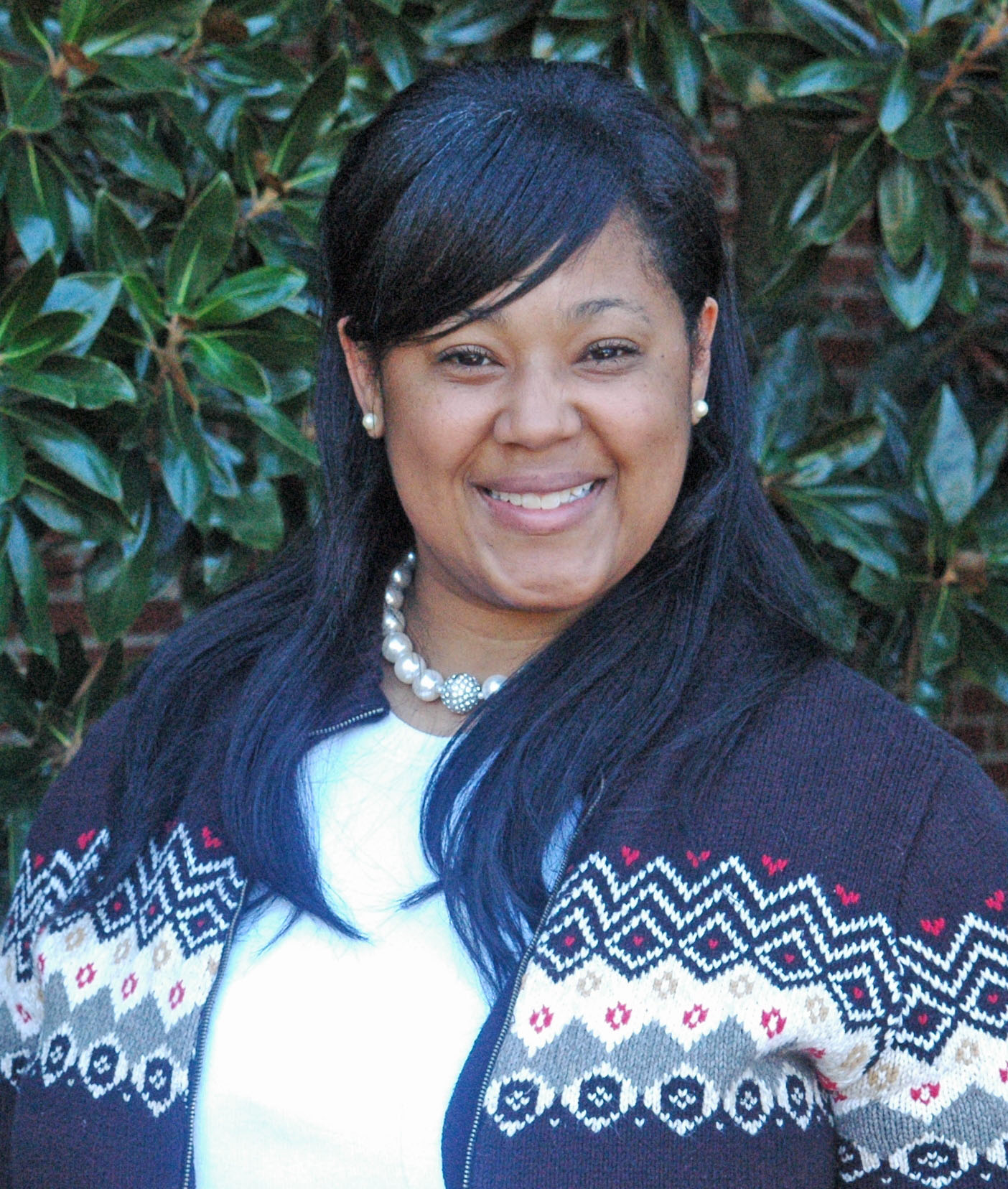
Kyla Marie Kurian, Ph.D., NCC
Kyla Marie Kurian is an assistant professor at North Carolina Central University, where she teaches in the counselor education program in the Department of Allied Health Professions. Dr. Kurian earned her doctorate in counseling from North Carolina State University. Following graduation, Dr. Kurian spent three years as a National Institute on Drug Abuse postdoctoral fellow, where she received advanced training in the research areas of substance abuse and HIV interventions. Dr. Kurian’s research focuses on understanding the effects of oppression on the identity development of black and Coloured South African women and addressing the differences in preparing counselors of color in counselor education and supervision practice.
Dr. Kurian was awarded a Center for AIDS Research (CFAR) grant from the University of North Carolina at Chapel Hill to adapt an evidence-based HIV intervention for African-American college women. Most recently, Dr. Kurian headed a team of researchers who were awarded a 2014 Association for Counselor Education and Supervision (ACES) research grant.
Q & AUnderstanding Diversity in Teaching and Program Evaluation
According to a 2014 special report by USA Today, analysis of census data reveals a one-in-two chance that the next individual you encounter in a public setting such as work or a store will be from a race or ethnic group different from your own. As counselors, we need to understand diversity in teaching in terms of the responsibilities identified in the 2012 NBCC Code of Ethics, the 2014 American Counseling Association (ACA) Code of Ethics and the Council for Accreditation of Counseling & Related Educational Programs (CACREP) 2009 Standards.
During this session, participants will:
- Discuss the importance of diversity in teaching and program evaluation.
- Examine diversity in teaching and program evaluation as it relates to the 2012 NBCC Code of Ethics, the 2014 ACA Code of Ethics and the 2009 CACREP Standards.
- Identify, compare and evaluate the appropriateness of multicultural training experiences.
- Identify useful strategies for experiencing challenging student responses to multicultural sensitivity and awareness.
- Apply information related to diversity in teaching and program evaluation through the use of scenarios.
- Examine future directions for diversity in teaching and program evaluation.
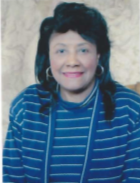
Gloria Dansby-Giles, Ed.D., NCC, NCSC, NCCC, ACS, LPC
Gloria Dansby-Giles is professor of counselor education at Jackson State University, in Mississippi. She is a National Certified Counselor (NCC), a National Certified School Counselor (NCSC), a National Certified Career Counselor (NCCC) and an Approved Clinical Supervisor (ACS). Dr. Dansby-Giles has served on the NBCC Minority Fellowship Program Advisory Council and as southern regional vice president and ethics chair for the American School Counselor Association (ASCA). She has also served on the Mississippi Board of Examiners for Licensed Professional Counselors.
Dr. Dansby-Giles has received numerous awards for teaching, including the Faculty Excellence Award, the Innovators Award and three College of Education teaching awards. Other notable recognition includes the Higher Education Appreciation Day, Working for Academic Excellence from the Mississippi state legislature and the Teaching Effectiveness Award.
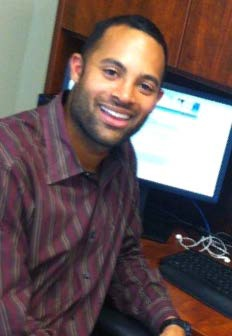
Phillip Clarke, Ph.D., NCC, LPC
Dr. Clarke is an assistant professor in the Department of Counseling at Wake Forest University, where he teaches courses on addictions and advanced counseling skills. Dr. Clarke is a National Certified Counselor (NCC) and a licensed professional counselor in the state of North Carolina. His research and writing interests include wellness and development, substance abuse, supervision and teaching, and individuals diagnosed with dementia and their caregivers. He currently provides individual and group counseling for clients living with dementia and their caregivers at Wake Forest Baptist Health.
Q & APromoting the Intersectionality of Multicultural and LGBTQ Competency
A key component to forming our professional ethical identity is maintaining appropriate multicultural competency as professional counselors. Within the profession of counseling, there currently exist important competency documents that guide counseling practices with multicultural populations, spirituality issues, and LGBTQ individuals. This webinar will help participants to learn the framework for defining counseling competency and recognize the importance of viewing cultural competency as the intersectionality of race, ethnicity, age, socioeconomic status, ability, gender/gender identity, and sexual orientation. Participants will identify strategies to integrate the various competency models in order to promote best practices with LGBTQ clients and students.
During this session, participants will:
- Examine the intersectionality of the multicultural and the LGBTQ competencies when counseling LGBTQ individuals from diverse backgrounds.
- Explore the training needs for counselors working with the LGBTQ population.
- Identify strategies for addressing potential value conflicts and ethical issues that may exist in counseling LGBTQ individuals.
- Discuss strategies for increasing professional competency when working with this population.
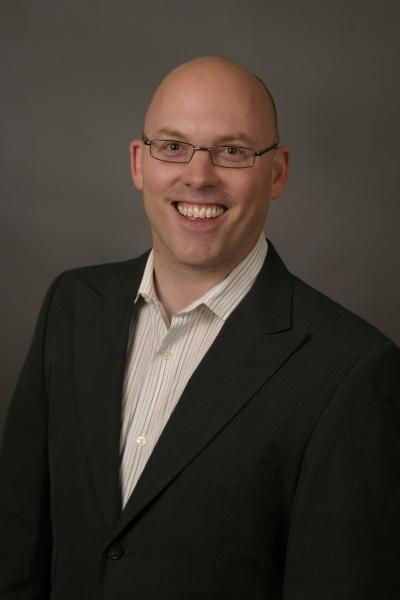
Michael M. Kocet, Ph.D., NCC, LMHC
Dr. Kocet is associate professor and student affairs program director of the Department of Counselor Education at Bridgewater State University. Dr. Kocet earned his Ph.D. in counselor education from the University of Arkansas and completed a graduate certificate in dispute resolution at the University of Massachusetts Boston. He is a licensed mental health counselor and a National Certified Counselor (NCC). His professional areas of interest include ethical issues in counseling; counseling gay, lesbian, bisexual and transgender clients; and grief counseling. He is the author of numerous journal articles and book chapters on ethics and diversity issues. Dr. Kocet served as a member of the American Counseling Association (ACA) Ethics Committee (2001-2007) and as chair of the ACA Ethics Code Revision Taskforce (2002-2005). He is past president of the Association for Lesbian, Gay, Bisexual, and Transgender Issues in Counseling (ALGBTIC). He has presented at local, state and national conferences on counseling and student affairs, and is sought as a national speaker and consultant on ethical issues in counseling.
Q & ADSM-5: Exploring New Clinical Perspectives (Part 3)
The mental health professions are in the process of transitioning to a new version of the Diagnostic and Statistical Manual of Mental Disorders, which was developed to align with the International Classification of Diseases (ICD-10) and represents the most current research in the assessment and identification of mental disorders.
This third webinar focuses on disorders common in the practice of mental health counselors, including some disorders new to the DSM-5. Several disorders will be covered in more depth, including autism spectrum; schizophrenia spectrum; and bipolar, depressive, anxiety, trauma-based, and substance use and addictive disorders. The presentation will also include an enhanced focus on the use of cross-cutting symptom and severity measures and a review of best practices in diagnosing and preparing for treatment.
After this session, participants will be able to:
- Describe the salient diagnostic criteria of common DSM-5 mental disorders.
- Describe how to use cross-cutting symptom and severity measures to strengthen assessment and clinical utility.
- Identify at least two best-practice strategies in diagnosing and preparing for treatment-planning.
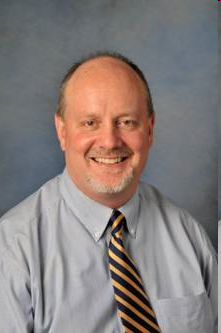
Matt Buckley, Ed.D., NCC, ACS, DCC, LPC, LMHC
Matt Buckley received both his master’s in community counseling and his doctorate in counselor education and supervision from Idaho State University in Pocatello. He is a licensed professional counselor in Mississippi and Arkansas and a licensed clinical mental health counselor in Utah. Dr. Buckley has been a practicing counselor since 1993 and specializes in marriage and family, child and adolescent, and group counseling. He is a board-approved clinical supervisor in Mississippi and Arkansas, where he provides clinical supervision for other professional counselors and counselors-in-training. Dr. Buckley is a National Certified Counselor (NCC), an Approved Clinical Supervisor (ACS) and a Distance Credentialed Counselor (DCC). Dr. Buckley is a counselor educator at Walden University and the former program director for the M.S. in mental health counseling program. He previously served as division chair and associate professor of counselor education at Delta State University in Cleveland, Mississippi. Dr. Buckley serves as an examination committee member for the National Clinical Mental Health Counseling Examination (NCMHCE) for the National Board for Certified Counselors (NBCC).
Dr. Buckley is a counselor educator at Walden University and the former program director for the M.S. in mental health counseling program. He previously served as division chair and associate professor of counselor education at Delta State University in Cleveland, Mississippi. Dr. Buckley serves as an examination committee member for the National Clinical Mental Health Counseling Examination (NCMHCE) for the National Board for Certified Counselors (NBCC).
DSM-5: Exploring New Clinical Perspectives (Part 2)
The mental health professions are in the process of transitioning to a new version of the Diagnostic and Statistical Manual of Mental Disorders, which was developed to align with the International Classification of Diseases (ICD-10) and represents the most current research in the assessment and identification of mental disorders.
Part two will focus on specific assessment instruments related to the DSM-5 and how to creatively and effectively use them in practice. Unprecedented in the history of the DSM is the series of assessment instruments available to mental health clinicians on the companion Web site, www.psychiatry.org/dsm5. The discussion will feature specific assessment instruments, their utility and limitations, and suggestions for use, including sensitivity in their application. The presentation will also highlight specific instruments, including the World Health Organization Disability Assessment Schedule (WHODAS), the Cultural Formulation Interview (CFI), and some cross-cutting symptom severity measures, and provide examples of how some of these instruments are being used in clinical practice.
After this session, participants will be able to:
- Describe the uses of level 1 and level 2 cross-cutting measures, the WHODAS, and the Cultural Formulation Interview.
- Identify two best practices in using the DSM-5 assessment measures.
- Identify how they can utilize these assessment instruments to better inform diagnosis and treatment-planning.

Matt Buckley, Ed.D., NCC, ACS, DCC, LPC, LMHC
Matt Buckley received both his master’s in community counseling and his doctorate in counselor education and supervision from Idaho State University in Pocatello. He is a licensed professional counselor in Mississippi and Arkansas and a licensed clinical mental health counselor in Utah. Dr. Buckley has been a practicing counselor since 1993 and specializes in marriage and family, child and adolescent, and group counseling. He is a board-approved clinical supervisor in Mississippi and Arkansas, where he provides clinical supervision for other professional counselors and counselors-in-training. Dr. Buckley is a National Certified Counselor (NCC), an Approved Clinical Supervisor (ACS) and a Distance Credentialed Counselor (DCC). Dr. Buckley is a counselor educator at Walden University and the former program director for the M.S. in mental health counseling program. He previously served as division chair and associate professor of counselor education at Delta State University in Cleveland, Mississippi. Dr. Buckley serves as an examination committee member for the National Clinical Mental Health Counseling Examination (NCMHCE) for the National Board for Certified Counselors (NBCC).
Q & ADSM-5: Exploring New Clinical Perspectives (Part 1)
The mental health professions are in the process of transitioning to a new version of the Diagnostic and Statistical Manual of Mental Disorders, which was developed to align with the International Classification of Diseases (ICD-10) and represents the most current research in the assessment and identification of mental disorders.
Part 1 will focus on basic changes to the DSM-5 and its clinical utility, including the shift from categorical to dimensional assessment, use of cross-cutting symptom and severity measures, elimination of the multiaxial format and development of a nonaxial diagnosis, and adoption of a spectrum perspective. The material will be presented from the perspective of professional counseling and how counselors can maintain a lifespan development and wellness perspective while working within this mental health nosology inherently embedded in the medical model. This presentation will serve as a foundation for future webinars on the assessment and diagnosis of specific mental disorders, treatment implications, and therapeutic factors in counseling interventions.
After this session, participants will be able to:
- Describe the major differences between categorical and dimensional approaches to diagnosis.
- Describe how the DSM-5 provides clinical utility in regard to the process of assessing and diagnosing clients.
- Identify two best-practice strategies for maintaining a counselor’s perspective while using the DSM-5.

Matt Buckley, Ed.D., NCC, ACS, DCC, LPC, LMHC
Matt Buckley received both his master’s in community counseling and his doctorate in counselor education and supervision from Idaho State University in Pocatello. He is a licensed professional counselor in Mississippi and Arkansas and a licensed clinical mental health counselor in Utah. Dr. Buckley has been a practicing counselor since 1993 and specializes in marriage and family, child and adolescent, and group counseling. He is a board-approved clinical supervisor in Mississippi and Arkansas, where he provides clinical supervision for other professional counselors and counselors-in-training. Dr. Buckley is a National Certified Counselor (NCC), an Approved Clinical Supervisor (ACS) and a Distance Credentialed Counselor (DCC). Dr. Buckley is a counselor educator at Walden University and the former program director for the M.S. in mental health counseling program. He previously served as division chair and associate professor of counselor education at Delta State University in Cleveland, Mississippi. Dr. Buckley serves as an examination committee member for the National Clinical Mental Health Counseling Examination (NCMHCE) for the National Board for Certified Counselors (NBCC).
Q & APreparing a Research Manuscript for Publication
This webinar focuses on the process of turning a research paper or conceptual paper into a manuscript suitable for publication. Participants will learn about key manuscript components, types of manuscripts, cover letters and finding a suitable venue for submission.
After the session, participants will be able to:
- Identify the components of a manuscript suitable for publication.
- Locate an appropriate publication for submission of their manuscript.
- Understand the process of submission and review of their manuscript.
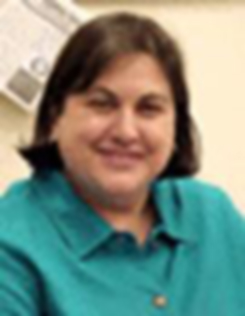
Sandra I. Lopez-Baez, Ph.D., NCC, ACS, CCMHC, LPC-Chair
Dr. Lopez-Baez is a professor in the counseling and educational leadership programs at Montclair State University. Over the past 30 years, she has been a counselor educator and supervisor, practicing clinician, researcher and consultant. Her work has included undergraduate- and graduate-level teaching, as well as medical education, program development, research activities, consultation (cross-cultural), and counseling individuals, couples and groups in a private practice setting. Her research interests include diversity, multicultural issues, outcome measurement after "growth" experiences, and the neurobiology of connection related to discrimination. Dr. Lopez-Baez has been an active participant in national, regional and state professional associations, serving as president of both the Ohio Association for Multicultural Counseling and Development, and Counselors for Social Justice, a division of the American Counseling Association (ACA). She has published in peer-reviewed journals, and has delivered multiple presentations at regional, national and international conferences. Dr. Lopez-Baez is a National Certified Counselor (NCC), a Certified Clinical Mental Health Counselor (CCMHC) and an Approved Clinical Supervisor (ACS), as well as a licensed professional counselor in Ohio, Puerto Rico and Virginia. She is a member of ACA, the Association for Multicultural Counseling and Development (AMCD), the Association for Counselor Education and Supervision (ACES), and Chi Sigma Iota International Counseling Honor Society.
Finding Your Voice as a Social Justice Advocate
After the session, participants will be able to:
- Learn what social justice advocacy is and the aspects it encompasses.
- Identify how their everyday work empowers nondominant groups.
- Identify professional and personal strengths that transfer to advocacy work.
- Learn strategies to become a stronger advocate.
- Learn how to create an advocacy action plan.
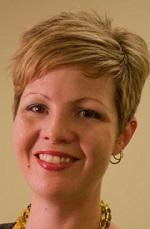
Presented by: Jennifer M. Cook Ph.D., NCC, LPC
Jennifer M. Cook is assistant professor in the Department of Counselor Education and Counseling Psychology at Marquette University, in Milwaukee, Wisconsin. She is a passionate multicultural counselor, educator, supervisor and researcher who infuses advocacy throughout her work. Dr. Cook has served clients, particularly underserved populations, in private practice and clinical mental health settings, and supervised school and clinical mental health counselors-in-training. Her research interests focus on counselor multicultural development, with particular emphasis on issues related to social class and socioeconomic status. Dr. Cook earned her Ph.D. in counselor education from Virginia Polytechnic Institute and State University and was proud to be selected for the 2013 NBCC Minority Fellowship Program.
Q & AManaging Clients at Risk for Suicide or Violence: Legal and Ethical Issues
After the session, participants will be able to:
- Understand that it is important to use the term “may be risk” rather than “at risk;”
- Appreciate the importance of following guidelines for dealing with potentially at-risk clients that have been established by their place of employment;
- Articulate the reasons why involving immediate supervisors when clients may be at risk for suicide or violence is so important;
- List options that are available to counselors when a determination is made that the client is not at risk for suicide;
- Discuss procedures to follow when a client who may be risk for suicide or violence returns to the counselor for additional services.
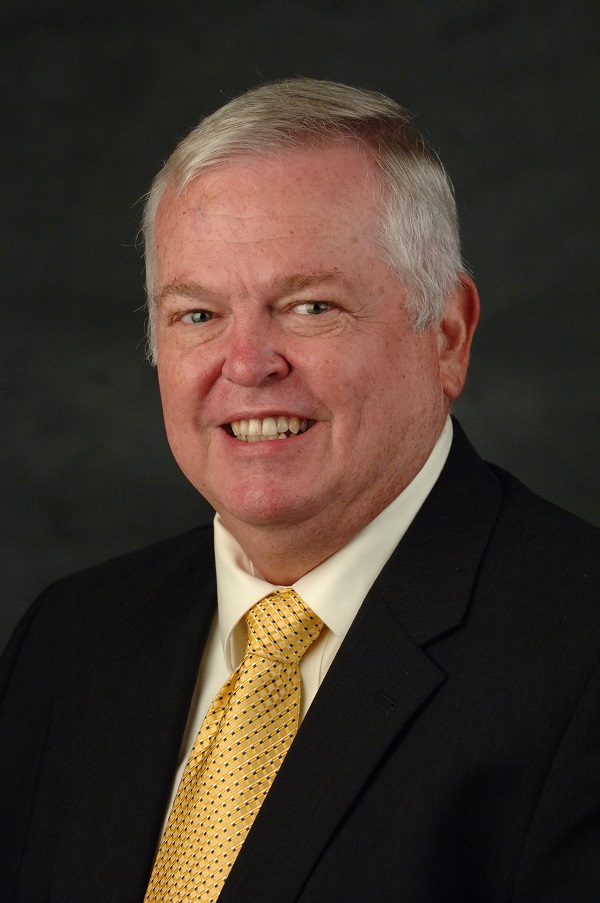
Presented by: Theodore P. Remley Jr.Ph.D., J.D., NCC, LPC, LMFT
Theodore P. Remley Jr. is a professor of counseling at Our Lady of Holy Cross College in New Orleans, Louisiana. Dr. Remley holds a Ph.D. in counselor education from the University of Florida and a law degree from Catholic University in Washington, D.C. He is a National Certified Counselor (NCC) and a member of Chi Sigma Iota. He is licensed as a professional counselor in Virginia, Louisiana and Mississippi, and is licensed to practice law in Virginia and Florida. He is licensed as a marriage and family therapist in Louisiana. Dr. Remley is the author and co-author of a number of articles, books and book chapters related to legal and ethical issues in counseling. For more than a decade, he has directed very popular counselor institutes in Italy and Ireland, and in cooperation with NBCC International, in Bhutan; Buenos Aires, Argentina; and Malawi, Africa. In the past, Dr. Remley has held full-time counseling faculty positions at George Mason University, Mississippi State University, the University of New Orleans and Old Dominion University. Dr. Remley is a former executive director of the American Counseling Association.
Q & ACounseling African-American Male Substance Users
At the end of the session, participants will be able to:
- Identify barriers to African-American male substance users' participation in counseling therapy and research.
- Describe active coping and discuss its impact on African-American male behavior and assessments.
- Identify strategies for addressing African-American males' active coping styles in a counseling setting.
- Describe the influence of spirituality on African-American male substance users' core belief system behavior patterns.
- List four factors related to substance use among African-American male substance users.
- List four methods for engaging and retaining African-American male substance users in counseling and research.

Presented by: Robert A. Horne Ph.D, NCC, LPC, LCAS, CSI
Robert A. Horne holds a Ph.D. in counseling and counselor education from North Carolina State University, a master's degree in agency counseling from North Carolina Central University, and a Master of Divinity from Duke University's Duke Divinity School. He is a National Certified Counselor (NCC) and holds licenses in North Carolina as a licensed professional counselor, licensed clinical addiction specialist and clinical supervisor intern. Dr. Horne is a 2013 NBCC Minority Fellowship Program (MFP) Fellow and currently serves as a therapist in private practice. His research focuses on substance use, identity and spirituality among males of African descent. Dr. Horne has experience working with diverse populations and provides mental health and substance use training in multiple countries, including South Africa, Guyana and Jamaica.
NBCC Foundation has been approved by NBCC as an Approved Continuing Education Provider, ACEP No. 805. Programs that do not qualify for NBCC credit are clearly identified. NBCC Foundation is solely responsible for all aspects of the programs.
Each state sets its own requirements for licensure, including continuing education requirements to maintain licensure. Questions about CE requirements for state licensure should be directed to your state board. You can find their contact information on our state board directory.
